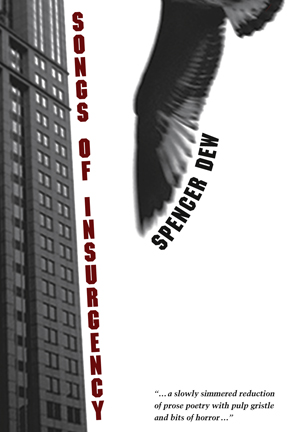 |
| The Traffic in Women by Kristina Marie Darling (dancing girl press, 2006) |
Our next installment of The Next Big Thing Blog Hop features prolific poet and writer Kristina Marie Darling, tagged by writer Spencer Dew. I'm looking forward to checking out her books, as Spencer speaks so highly of her writing.
*****
The Next Big Thing: What is the working title of your book?
Kristina Marie Darling: The book is called Petrarchan. I chose this title because the project is basically an attempt to feminize the writings of Francesco Petrarca, a poet whose sonnets about unrequited love are frequently associated with the male gaze. Each chapter takes its title from one of Petrarch's books—including "Guide to the Holy Land," "My Secret Book," and "Triumphs"—but they tell the story of a female protagonist. At the end of the book, readers will find two appendices, which attempt to draw parallels between Petrarch's body of work and Sappho's fragments through an ongoing erasure of the former's pristine sonnets.
TNBT: Where did the idea come from for your book?
KMD: You've probably guessed it: I was suffering from unrequited love. Around the same time, I read a poem by Linda Gregerson that sparked an interest in Petrarch. I wanted to find a way to reconcile my feminism with some of the more problematic aspects of Petrarch's sonnets (i.e., the male gaze, the silenced beloved, and the various master narratives about what love should or ought to be).
TNBT: What genre does your book fall under?
KMD: When asked, I usually call my book an "unclassifiable text." While the last two sections appear as fragments of poems, much of the work is written in prose footnotes.
TNBT: Which actors would you choose to play your characters in a movie rendition?
KMD: I would play myself. Matt Damon would be the "beloved" to whom my poems are written. Enough said.
TNBT: What is the one sentence synopsis of your book?
KMD: A woman wakes alone in a house by the sea.
TNBT: How long did it take for you to write the first draft of your manuscript?
KMD: The first draft took approximately a month, but it was an intense month, filled with disappointment, unfulfilled desire, Diet Coke, and Ramen noodles. The manuscript was a kind of ledger, which helped me document some of the things I was feeling, and relate my emotional life to the various literary and theoretical texts I was reading at the time.
TNBT: What other books would you compare this story to within your genre?
KMD: I'd have to say Aaron Kunin's Folding Ruler Star, Kathleen Peirce's The Ardors, and Ken Chen's Juvenilia.
TNBT: What else about your book might pique the reader’s interest?
Petrarchan is filled with "faint music," "dangerous objects," and even "a cluster of minor stars."
Blog Hop: Here’s who Kristina Marie Darling tags and why:
KMD: Carlo Matos, because I enjoyed his first two books, and I'd love to hear more about his forthcoming poetry collection, Big Bad Asterisk.
And Joe Hall, because his third book will be published this year, and it's going to be stellar.
*****
Now up on Tumblr:
Ocean Capewell's answers to The Next Big Thing Blog Hop questions
Previously:
The Next Big Thing Blog Hop: Spencer Dew
The Next Big Thing Blog Hop: Eric Nelson
The Next Big Thing Blog Hop: Karen the Small Press Librarian





